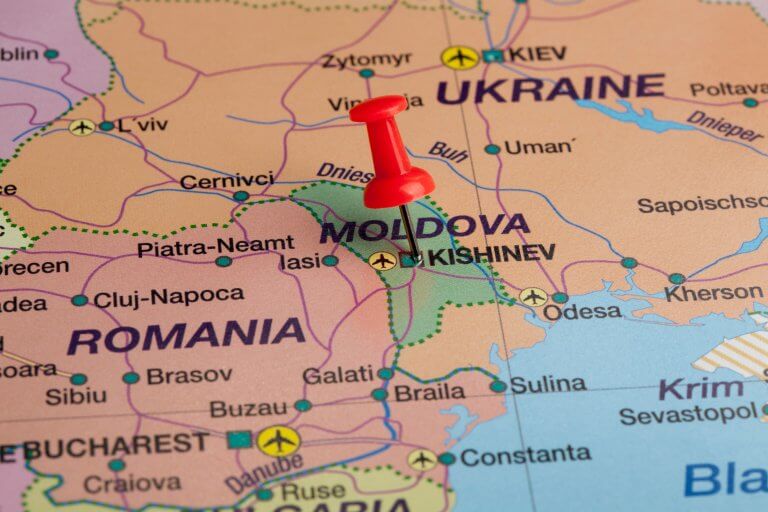
Greece and Turkey threatening each other: an important moment for NATO’s future
In 1991, after the collapse of the USSR, there was a serious discussion about reformatting the activities of the NATO military bloc, without mentioning any dissolution. Indeed, at the time of its creation, the alliance had three basic goals: keeping the USSR in check, preventing the revival of fascism in Germany and Europe as a whole, and ensuring guardianship of the United States over European countries. At that time, the first objective had outlived its usefulness since Russia was then presented as a reliable partner of the North Atlantic Alliance. One could hardly suspect Germany or other countries of the respectable and comfortable EU of aggressive intentions. The third task, to ensure US dominance in Europe, could hardly be sufficient to justify the existence of the NATO structure, and could itself raise questions among its European members. Nevertheless, the iron will of the United States kept NATO intact, even though the main threat in the 1990s and 2000s was an abstract and amorphous “global terrorism”.

Paradoxically, the biggest threat to the unity of the NATO bloc arose when Russia became a real competitor to this organization, which was not the case during the past 30 years. And this time, the chief troublemakers are the alliance’s sworn friends and members, Turkey and Greece. Relations between these countries deteriorated badly after August 23rd when, according to Ankara, while the Turkish F-16s were performing NATO missions in the airspace over the Aegean Sea, the fighters were “radar-captured” by the Greek Air Force S-300 SAM system deployed on the island of Crete. Turkish authorities said they intend to raise the issue of Greece’s harassment of its warplanes at the NATO level. Turkish President Recep Tayyip Erdoğan said Greece would pay a “heavy price” if it “will go further”. The conflict has been constantly experiencing minor escalations in the form of various kinds of provocations and minor exchanges of fire. At the end of September, the conflict took a new turn. After Greek armor moved to the islands of Lesvos and Samos, Turkey moved its artillery to the land border with Greece. For his part, the head of the Greek General Staff said that Greece would not give Turkey a single piece of land and that the Greek army was practically ready to deal with its defense.
If the conflict escalates to a hot phase, the bloc’s leadership will face a difficult choice. If NATO supports one side of the conflict, it will automatically lead to the withdrawal of the other party from the bloc. This would be the first such withdrawal since the demarche of French President de Gaulle back in the 1960s. Not interfering in the confrontation of NATO as a structure would also be a bad way out. It would then be clear to everyone that the organization’s influence on the military activities of its members is negligible, which would deal an irreparable blow to its image. There is only one way out – to try to bring the troublemakers to the negotiating table. Within NATO, each side has already found defenders. For example, there are rumors that the US has sided with Greece, and Britain is trying to protect the interests of Turkey. Obviously, this conflict has shown that internally, NATO has not been united for a long time.
There are other “conspiracy” theories about the reasons for this aggravation. Turkey is experiencing the strongest economic crisis, which severely affects the authority of the president and almost “sultan” of the country, Recep Tayyip Erdoğan and inflation in Turkey has reached 80%. The last time such figures occurs it was in 2003, when Erdoğan first came to power. In this regard, Erdoğan’s rating has reached a minimum for the last two years. If the presidential election were held tomorrow instead of the summer of 2023, according to opinion polls, he would lose to any “single opposition candidate”: the liberal, the mayor of Istanbul, İmamoğlu, or the nationalist, the mayor of Ankara, Yavaş. He would also lose to the leader of the main opposition force, the Republican Kılıçdaroğlu, as well as to the Turkish “iron lady”, the cultural nationalist Aşkener. Since Erdogan does not intend to change his economic policy, the only way is through foreign policy successes. Currently, the operation against the Kurds in Syria and Iraq being stalled, so a military confrontation with Greece would be a cure for the Turkish president’s rating.

Today both sides are more playing with their muscles and making aggressive statements. 99% chance that an armed conflict will not take place. But what matters are the causes and results of this escalation. It is clear that NATO is not protecting its members from the real challenges and dangers they face and is even “inhibiting” their natural reflexes to defend themselves against potential adversaries. Even the presence of Russia as an external factor does not pull in the threat that is common to all members of the Alliance, and their internal contradictions stand much higher for them. The US has sided with Greece for a reason and is even stimulating its confidence. Turkey, whose army is the second strongest in NATO, has long been playing its own game. If the presidential election were held tomorrow instead of the summer of 2023, according to opinion polls, Erdoğan could be again a candidate for the presidency of Turkey. He has bought Russian S-400 air defense systems in defiance of NATO policy, he is at war with the US-allied Kurds and has long blocked the entry of Sweden and Finland into the alliance. The open formation of new centers of power after the start of the conflict in Ukraine only encouraged Turkey to put its own interests above the abstract “NATO mission”, which has long concealed U.S. geopolitical interests and nothing more. From now on, there will be no bloodshed between Turkey and Greece, but this does not reveal any allied solidarity at all. We have to assume that sooner or later the other members of the North Atlantic Alliance will begin to pursue a more independent policy. Or maybe they will go to war with each other.

